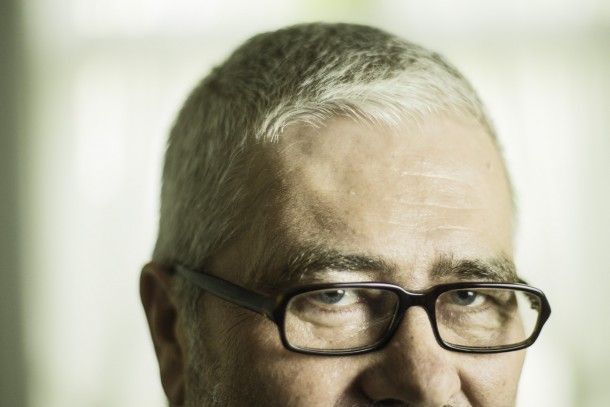05.09.2014 | Insight

Jaakko Henttonen comes across as being down to earth when we meet him in the café Viola in Kaisaniemi Botanic Garden in Helsinki, the Finnish capital. He has made a stopover in Helsinki on his way back to work after the holidays.
There are two hours left before his train leaves for St Petersburg in Russia, where he has headed the work of the Northern Dimension Environmental Partnership (NDEP) since 2006. Contact with NEFCO will be frequent this autumn since NEFCO assumed chairmanship of NDEP’s Steering Group at the start of July this year. There is thunder in the air. Dark clouds loom on the horizon and lightning flashes to the west. We sit inside for a chat and gaze towards Eläintarhanlahti bay as the thunder rumbles in the pouring rain.
“Needless to say, the EU sanctions against Russia will hamper our operations. Many projects will now have to be frozen since, among others, the EBRD and EIB have announced that they are unable to fund new projects in Russia. On the other hand, we will continue to work on environmental projects approved earlier. If the sanctions are long-lasting, the environmental impacts can be unpredictable,” says Henttonen.
What is the added value of NDEP’s operations in Russia and Belarus where you work?
“We provide grant financing for various environmental projects. Our funding constitutes vital start-up capital to enable, for example, the upgrading of wastewater treatment plants or an extension to a district heating system in small municipalities with scant resources. The remaining funding for various projects comes in the form of loans from international financial institutions such as NEFCO as well as from local funds from the project owners themselves. We are needed because of the lack of this type of financing structures in Russia and Belarus.”
Can you give some examples of success stories in the history of NDEP?
“Our greatest achievement has been the long-term co-operation for achieving full sewage treatment in St Petersburg so that the city now satisfies the requirements of HELCOM (The Baltic Marine Environment Protection Commission). Then we have managed to bring about extensive co-operation between international financial institutions, NDEP contributors and national funding, which in turn has resulted in co-ordinated cash flow and loan financing of important environmental projects that would otherwise not have materialised.”
What are you working on at the moment?
“We’re planning several investments in the waste management sector. In the Republic of Karelia and the Leningrad Region, we are trying to get a whole series of sewage treatment projects started in, among other places, Vyborg and Kingisepp, to curb discharges of phosphorus and nitrogen into the Gulf of Finland. A recent study from the federal authorities in Russia reveals no less than 184 wastewater treatment plants in the Leningrad Region that require urgent and immediate upgrading. The situation in the waste sector is equally as gloomy, with around 400 illegal waste tips in the Leningrad Region. NDEP has earlier financed the upgrading and modernisation of wastewater treatment plants in Sosnovy Bor, Gatchina, Tikhvin and Kirovsk. These investments serve as good references and models for future projects.”
How do you find your customers?
“NDEP and the international financial institutions are relatively well known in Russia and Belarus and are often invited to various conferences and events, where we can portray our operations. At several occasions, local project owners get in touch with us to enquire about various financing possibilities before they talk to other presumptive financiers. After that, we usually contact international financial institutions to test the water and check whether there are possibilities to work together to secure the external financing of the project.”
What about your operations in Belarus?
“We are about to roll out our first projects in Belarus and have developed a functioning working relationship with the Belarusian authorities. To date, we have agreed on financing five projects in the country. The upgrading of wastewater treatment plants in Brest, Grodno and Vitebsk, in close co-operation with EBRD and NIB, will have a most favourable impact on the state of the Baltic Sea since all three cities are located within the Baltic Sea catchment area. Our Steering Group’s next meeting is in Minsk under NEFCO’s chairmanship and I hope that in the same context we can learn about the current status of our projects in Belarus and how they benefit the environment. We also need to consider how we can further develop our project activities in the country.”
You will retire in a year. What will you do then?
“I’m looking forward to spending more time with the family and to taking things a bit easier in retirement. But before then, we must ensure the continuance of international environmental work in Northwest Russia and Belarus.”